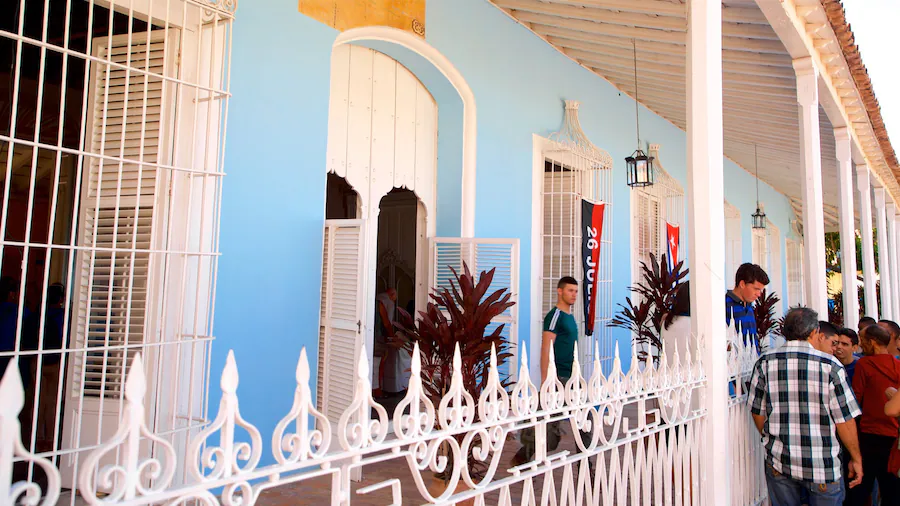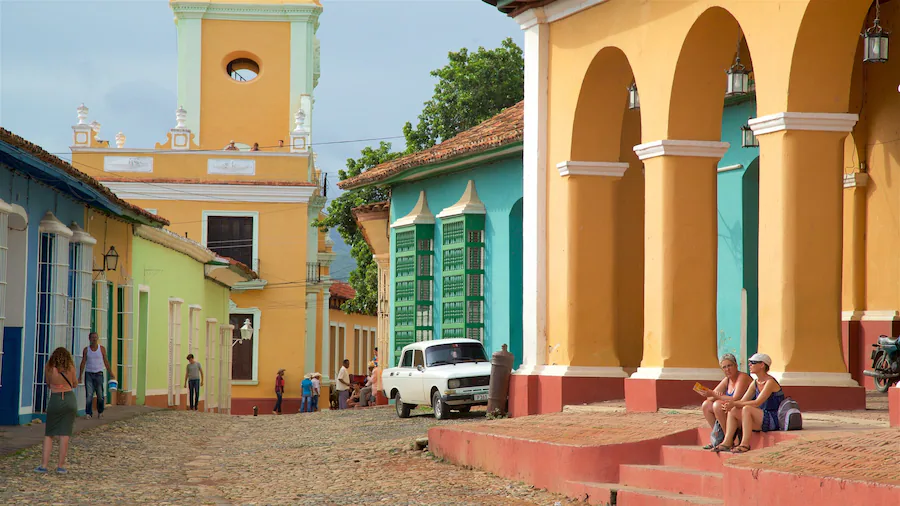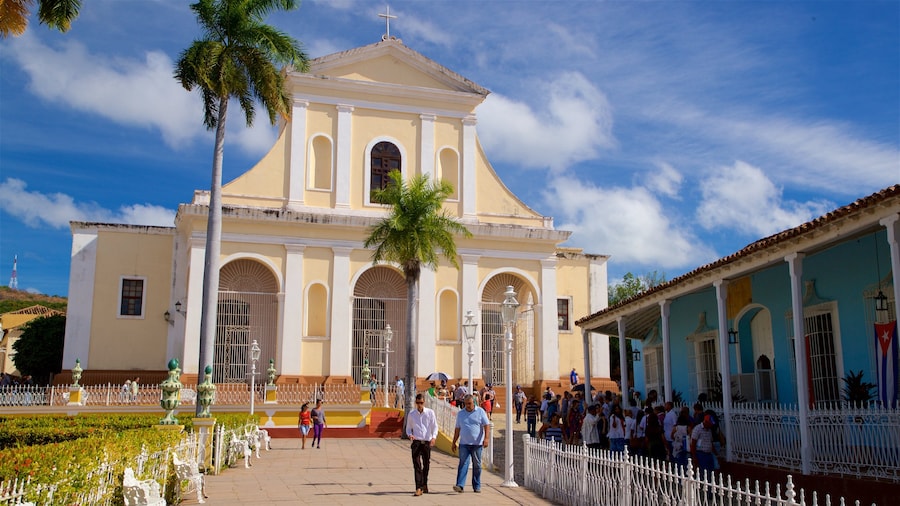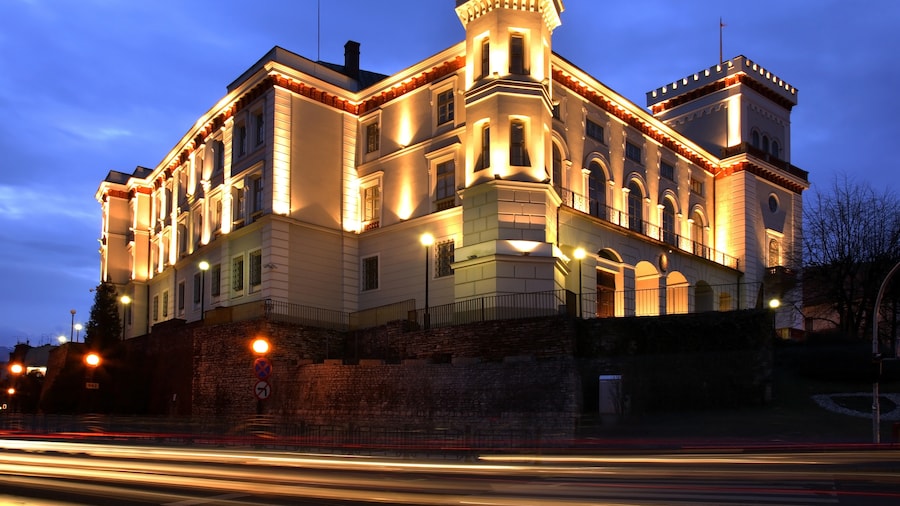Stroll through the nicely maintained Plaza Mayor (Main Square) at the center of Trinidad to appreciate the history of this fascinating city. Gaze at early 19th-century structures topped by terracotta tiles and learn their stories as part of the city’s past, which centered on a sugar industry supported by forced slave labor.
Stand at the bottom of the slightly sloping square to gaze upward at its palm trees and several sections of gardens. At the top of the slope is the town’s showpiece building, the pale yellow Iglesia Parroquial de la Santísima Trinidad or Church of the Holy Trinity. Admire its neoclassical Greek architecture and step through one of the three tall arches to go inside. Here the wooden statue known as Señor de la Vera Cruz or Christ of the True Cross occupies a place of honor.
Turn a full 360 degrees to see one impressive and colorful building after another. Next to the church is the brighter yellow Museo Romántico (Romance Museum) in the Palacio Brunet. It holds furniture and relics from the region’s wealthiest period.
Visit the bright blue Museo de Arquitectura Colonial housed in a villa once owned by the Iznaga family that ran the large sugar plantation east of the city. The neoclassical Palacio Cantero houses the Museo Histórico Municipal, with even more luxurious decorations including marble statues, delicate porcelain and crystal and finely embroidered lace.
From the square, view the pretty yellow Convento de San Francisco de Asís decorated with pastel green trim. Walk a block to the convent and climb the steps inside its multi-tiered bell tower to get a vista over Trinidad to the green hills beyond the city.
Largely because of the beautifully preserved buildings around Plaza Mayor, Trinidad and the neighboring Valle de los Ingenios have been recognized as a UNESCO World Heritage site. Visit this pretty plaza and learn about the sugar-producing era of the 1700s and 1800s that supported such magnificent architecture.



















